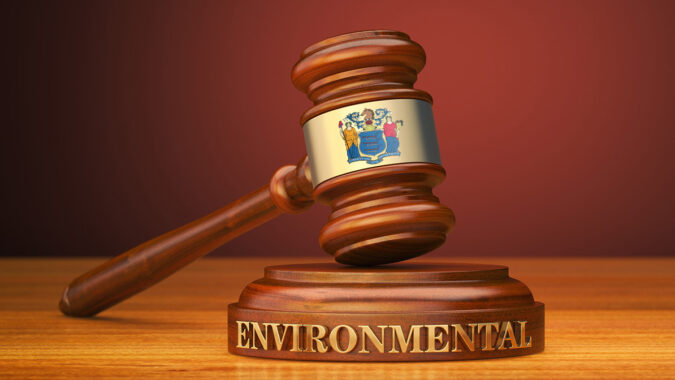A compressor station built on the site of a former quarry in West Milford to deliver natural gas to New York does not violate environmental standards contained in New Jersey’s Highlands Water Protection and Planning Act, an appellate court has ruled.
The ruling found that the state Department of Environmental Protection had acted properly in 2021 when it granted Tennessee Gas Pipeline Co. an “Exemption 11” under the Highlands Act. The exemption allows a public utility to upgrade lines and systems if the project is consistent with the goals of the Highlands Water Protection and Planning Act.
“Having reviewed the extensive record, we discern nothing arbitrary, capricious, or unreasonable in the DEP's determinations,” the appellate panel wrote June 27 in a ruling that apparently ends four years of litigation in the case.
The appellate panel noted at this point in the legal battle, the project is already built and has been operating for more than two years. “There is no showing that the station's operation has been detrimental to the Highlands area,” the appellate court pointed out.
Tennessee Gas owns and operates a natural gas pipeline system that runs from Texas to the eastern United States. The utility received approval from the Federal Energy Regulatory Commission (FERC) to construct and operate upgrades to its 300 Line, which includes Compressor Station 327 in West Milford, to move larger volumes of natural gas to meet increased demand in Westchester County, New York.
Compressor Station 327 is on a 47-acre property in West Milford, a site which previously was used as a gravel quarry, pipe storage yard, and recycling storage facility. The compressor is powered by an electric motor, and the station includes auxiliary equipment, including a generator, an office building, and a septic system.
Because the site was in the Highlands Preservation Area, DEP approval was also required. DEP determined the project was consistent with the area’s water quality management plan because the facility would use less than 650 gallons of water per day, and wastewater output would be less than 2,000 gallons per day.
Three environmental advocacy groups had appealed DEP’s 2021 decision, arguing that the language of Highlands Act should be narrowly construed to require that all upgrades at existing sites be “routine.” The New Jersey Supreme Court disagreed and in 2024 remanded the case back to the appellate division.
“In making our determination, we follow the guidance provided by the Supreme Court,” the appellate court said. “The (Supreme) Court stated, ‘the Highlands Act does not preclude development in [the preservation] area; it limits only development that is incompatible with preservation and would therefore cause a decline in the environmental quality of the region.’”
Attorney David Kott of McCarter & English filed an amicus brief on behalf of NJBIA in this matter when it was before the Supreme Court in 2024. That decision was heralded as a win for the business community because the court dismissed the plaintiffs’ broad interpretation of the language in the Highlands Act.
The Supreme Court noted the statutory language states projects are exempt from Highlands regulations if they qualify as “routine maintenance and operations, rehabilitation, preservation, reconstruction, repair, or upgrade of public utility lines, rights of way, or systems, by a public utility, provided that the activity is consistent with the goals and purposes of this act.” The word “routine” applies only to the term “maintenance and operations,” not all the exempted activities listed in that sentence, the court said.
“The plain language of Exemption 11 leads us to conclude that ‘routine’ modifies only “maintenance and operations” and does not modify 'upgrade,’” the 2024 Supreme Court decision said.




